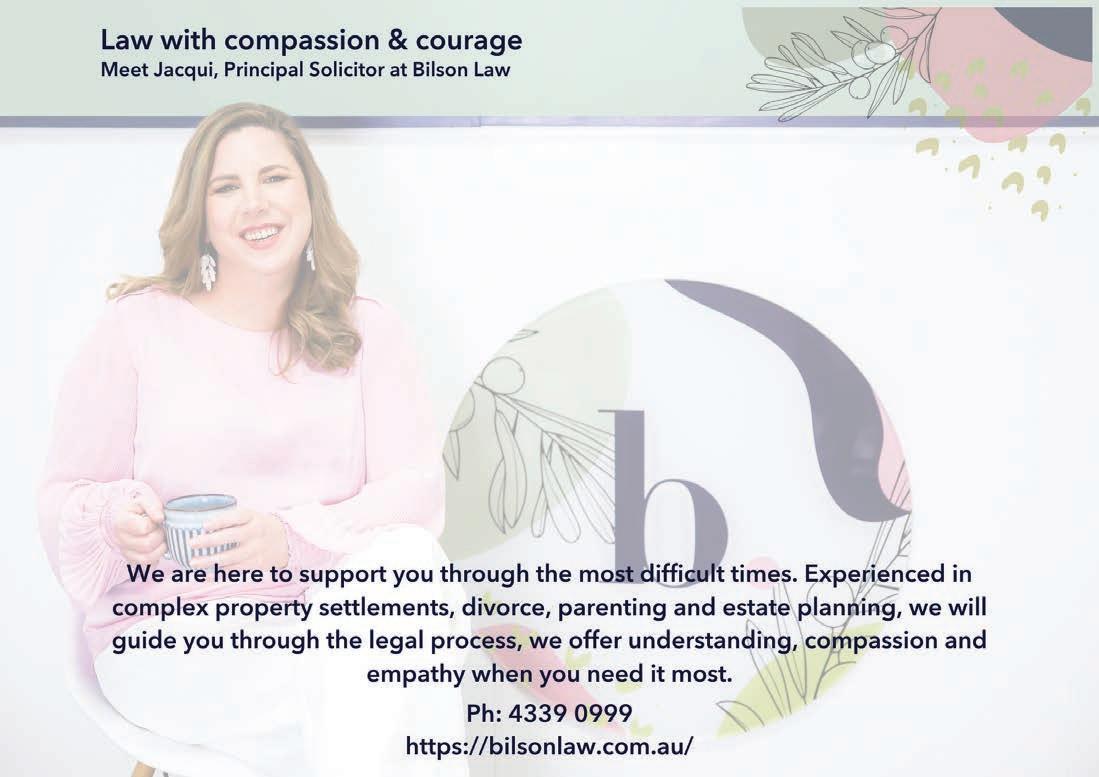
3 minute read
Managing the heat – Dealing with conflict in seperated families
It’s the start of another school year and managing routines can be difficult for separated families. We become skilled in the art of careful communication and it can feel like we are walking on eggshells. At Bilson Law, we have a few tips and tricks to help make it more manageable for separated families.
Take some time to get to know what stage of communication you and your co–parent are in. Communication dispute stages:
Smooth
Bumpy
The heat is on
The wheels are off
To keep it ‘smooth’ takes effort and planning.
You will need a different strategy depending on which stage you are in. Once you are in the ‘bumpy’, ‘heat’ or ‘wheels–off’ stages, it is time to get some advice from a family therapist or resolution–focused family lawyer.
Take some time to prepare an agreement about your communication. The co–parent agreement can address: how; when; why; what; and, all things communication related. It’s not just the content that causes difficulty, most of the time, it’s the delivery.
KEY BASICS OF THE CO–PARENTING COMMUNICATION AGREEMENT:
Value planning
What are your agreed values? These are the underlying values that bind your family. For example, we both love our children.
‘No–go zones
What are the topics that are off–limits? What topics should only be discussed with the assistance of a mediator or family therapist?
Means of Communication
What types of communication work? Are there certain types of communication that don’t work? For example, in–person, text message, email, co–parenting app.
Timing
What times are off–limits? Are there certain times of the day? Days of the week? Take time to consider a particular time each week that suits both of you.
Time frame expectations
Consider what time frame is reasonable for certain responses. For example, if the request is a practical issue, perhaps 24 hours is appropriate? Or, if the request is about education or non–urgent health matters, perhaps 2–3 days is appropriate?
Both parents matter
Reaching agreement requires that both parents have expressed their view and feel heard. If you do not feel comfortable to express your views about the communication agreement, engage with a mediator. Many legal disputes could be avoided if co–parents are able to develop strategies to communicate safely and effectively.
What if?
Have a plan about what will happen if the communication gets bumpy. Will you hold off for 24–48 hours? Will communication be limited back to email only? Or use of a co–parenting application
Have a plan about what will happen if the ‘heat is on’ or the ‘wheels fall off’. Agree NOW on who the mediator will be.
Third parties
Who are the unhelpful people that should not become involved in the communication? Or, are there helpful people who should be involved?
For guidance on establishing a healthy co–parenting communication strategy to prevent the wheels falling off, contact the Bilson Law team to schedule a co–parents communication strategy appointment.
Bilson Law
Phone 4339 0999
Suite 4, 210 The Entrance Rd
Erina NSW Australia 2250
bilsonlaw.com.au










